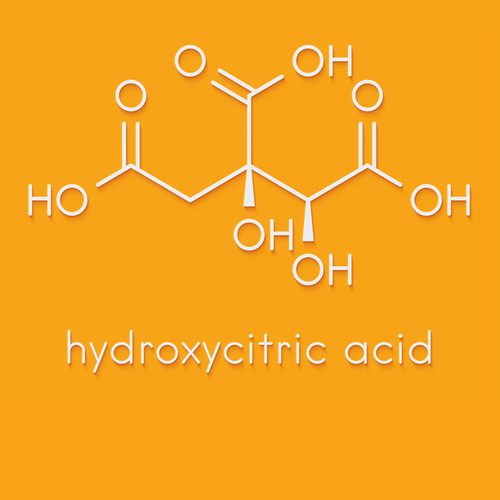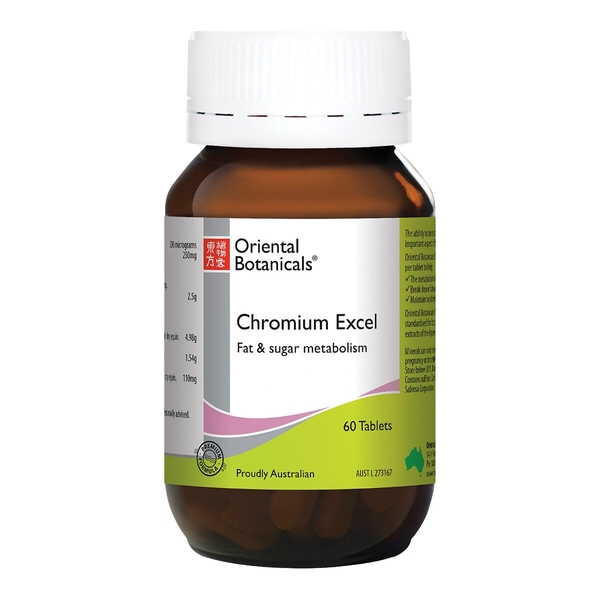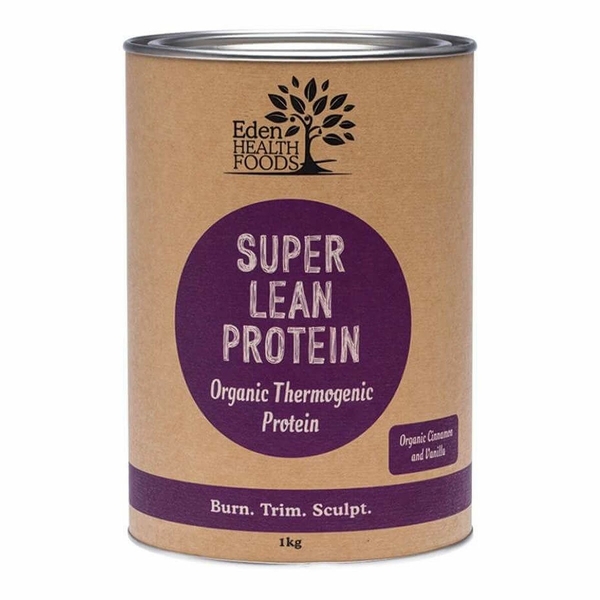
Background
Used for athletic performance, weight loss, and other conditions, but there is no strong evidence to support any use.
Possibly safe when used orally at doses of up to 2800 mg daily, short-term. Side effects may include nausea, gastrointestinal discomfort, or headache.
No known major interactions.
People use this for...
Safety Safety definitions
Effectiveness Effectiveness definitions
INSUFFICIENT RELIABLE EVIDENCE TO RATE
Athletic performance. Preliminary clinical research shows that taking hydroxycitric acid 250 mg daily for 5 days while participating in daily exercise training increases time to exhaustion from approximately 25 minutes to approximately 45 minutes in previously untrained women (19151). Other preliminary clinical research shows that taking hydroxycitric acid 250 mg daily for 5 days increases time to exhaustion compared to placebo in elite athletes (26858).
Obesity. Preliminary clinical research shows that, when taken by overweight and obese adults who are exercising and following a reduced-calorie diet, a specific product (Super CitriMax) containing hydroxycitric acid 2800 mg or the same product plus niacin-bound chromium 2 mg and gymnema extract 400 mg daily for 8 weeks reduces body weight and body mass index by about 5% to 6% compared to baseline (19153). However, other clinical research shows that taking hydroxycitric acid orally for only 2 weeks does not help to significantly decrease weight, satiety, fat oxidation, or energy expenditure compared to control in obese people (8572,11407).
More evidence is needed to rate hydroxycitric acid for these uses.
Natural Medicines rates effectiveness based on scientific evidence according to the following scale: Effective, Likely Effective, Possibly Effective, Possibly Ineffective, Likely Ineffective, Ineffective, and Insufficient Evidence to Rate.
Dosing & administration
- AdultOral:
Athletic performance Hydroxycitric acid 250 mg daily for 5 days has been used (19151,26858).
Obesity Hydroxycitric acid 2800 mg daily for 8 weeks has been used (19153).
Standardization & formulationThere is insufficient reliable information available about the standardization of hydroxycitric acid.
Adverse effects
Gastrointestinal: Orally, hydroxycitric acid can cause nausea and gastrointestinal (GI) discomfort (11977).
Neurologic/CNS: Orally, hydroxycitric acid can cause headaches (11977). .
General: Orally, hydroxycitric acid seems to be well tolerated when taken in doses of 2800 mg daily for up to 12 weeks (11977,19153,26859). Side effects including nausea, gastrointestinal discomfort, and headache have been reported (11977). There is some concern that hydroxycitric acid may cause hepatotoxicity. However, this concern is based on low-quality evidence, and not all experts agree (26864,95576).
Hepatic: Orally, there is some concern that hydroxycitric acid may cause liver injury. While hepatotoxic effects have not been reported with hydroxycitric acid in human research, hydroxycitric acid has been shown to increase lipid accumulation in the liver (26864). Also, it has been hypothesized that hydroxycitric acid is hepatotoxic based on hepatotoxicity of dietary supplements containing this ingredient. However, some experts believe that there is not enough information to attribute hepatotoxicity to hydroxycitric acid (95576).
Toxicology
Interactions with pharmaceuticals
ANTIDIABETES DRUGSInteraction Rating: Moderate Be cautious with this combination.Severity: Moderate Occurrence: Possible Level of evidence: DHydroxycitric acid reduces fasting and post-prandial blood glucose levels in animal models (26863,26867,26868). Theoretically, hydroxycitric acid might have additive effects with antidiabetes drugs and increase the risk of hypoglycemia. Monitor blood glucose levels closely. Dose adjustments might be necessary. Some antidiabetes drugs include glimepiride (Amaryl), glyburide (DiaBeta, Glynase PresTab, Micronase), insulin, pioglitazone (Actos), rosiglitazone (Avandia), and others.
ANTICOAGULANT/ANTIPLATELET DRUGSInteraction Rating: Moderate Be cautious with this combination.Severity: Moderate Occurrence: Possible Level of evidence: DHydroxycitric acid inhibits platelet aggregation in vitro (26862). Theoretically, hydroxycitric acid might increase the risk of bleeding when used with antiplatelet or anticoagulant drugs. Some anticoagulant or antiplatelet drugs include aspirin, clopidogrel (Plavix), dalteparin (Fragmin), enoxaparin (Lovenox), heparin, ticlopidine (Ticlid), warfarin (Coumadin), and others.
Interactions with herbs & supplements
Hydroxycitric acid may inhibit platelet aggregation (26862). Theoretically, concomitant use with herbs that affect platelet aggregation might increase the risk of bleeding in some people. These herbs include angelica, danshen, garlic, ginger, ginkgo, red clover, turmeric, willow, Panax ginseng, and others.
Hydroxycitric acid may lower blood glucose levels (26863,26867,26868). Theoretically, hydroxycitric acid might have additive effects when used with herbs and supplements with hypoglycemic potential. Monitor blood glucose levels closely. Some herbs and supplements with hypoglycemic potential include devil's claw, fenugreek, guar gum, Panax ginseng, Siberian ginseng, and others.
Interactions with foods
None known.
Interactions with diseases
BLEEDING CONDITIONS: Hydroxycitric acid might inhibit platelet aggregation (26862). Theoretically, hydroxycitric acid may increase the risk of bleeding in patients with bleeding disorders. Use with caution.
DIABETES: Hydroxycitric acid might affect blood glucose levels (26863,26867,26868). Theoretically, hydroxycitric acid might interfere with blood glucose control in patients with diabetes. Dosing adjustments for insulin or oral hypoglycemic agents may be necessary.
SURGERY: Hydroxycitric acid might affect blood glucose levels (26863,26867,26868) and inhibit platelet aggregation (26862). Theoretically, hydroxycitric acid might interfere with blood glucose control during and after surgical procedures or increase the risk of excessive bleeding if used perioperatively. Tell patients to discontinue using hydroxycitric acid at least 2 weeks before elective surgical procedures.
Mechanism of action
Antidiabetic effects: Animal research shows that hydroxycitric acid reduces insulin resistance and lowers fasting plasma insulin and glucose levels in diabetic mice (26863). Other animal research shows that hydroxycitric acid decreases the absorption of glucose in small intestinal tissue and improves glucose tolerance in rats (26867,26868).
Anti-inflammatory effects: Hydroxycitric acid may have anti-inflammatory effects. Animal research shows that hydroxycitric acid reduces the expression of inflammation-related genes and reduces inflammatory markers, including C-reactive protein (CRP) and interleukin-6 cytokine levels (26863, 102380).
Antiplatelet effects: Hydroxycitric acid decreases acetyl-CoA content in platelet cytoplasm and suppresses malonyl dialdehyde (MDA) synthesis and platelet aggregation in vitro (26862).
Athletic performance effects: Hydroxycitric acid is commonly used for improving athletic performance. Preliminary clinical research shows that short-term administration of hydroxycitric acid decreases respiratory exchange ratio, increases plasma free fatty acid levels, decreases carbohydrate oxidation, and increases fat oxidation during moderate-intensity exercising. This suggests that hydroxycitric acid might reduce fatigue and improve performance by decreasing glycogen utilization during exercise (26856,19151,26858). Animal research shows that chronic administration of hydroxycitric acid affects energy metabolism by promoting lipid oxidation and sparing carbohydrate utilization at rest and during exercise (4487).
Renal effects: In an animal model, hydroxycitric acid reduces calcium oxalate crystals, as well as markers of oxidative stress and renal impairment (102380).
Weight loss effects: Preliminary clinical research shows that hydroxycitric acid can lower non-protein respiratory quotient, fat balance, and net fat synthesis during a persistent intake of excess carbohydrate compared to placebo, suggesting that hydroxycitric acid limits the body's ability to convert dietary carbohydrates into fat (26859,11977). Other preliminary clinical research shows that taking hydroxycitric acid reduces food intake by approximately 15% compared to baseline (19153). However, conflicting results suggests that hydroxycitric acid does not help decrease appetite (26859,26876). Preliminary clinical research suggests that taking hydroxycitric acid for 8 weeks reduces total cholesterol by 7.2%, low-density lipoprotein (LDL) cholesterol by about 13%, triglycerides by about 6%, and serum leptin levels by about 40%, as well as increases high-density lipoprotein cholesterol by 8% and serotonin levels by about 45% in obese individuals (19153). Animal research shows that taking hydroxycitric acid orally upregulates certain genes that encode serotonin receptors (26874). Other animal research suggests that hydroxycitric acid promotes both down- and up-regulation of various fat- and obesity-related genes, as well as the transactivation of hypoxia inducible factor (26861).
Pharmacokinetics
Absorption: In humans, plasma concentrations of hydroxycitric acid appear to be to 0.8 mcg/mL at 30 minutes and 8.4 mcg/mL at 2 hours after ingestion of 2 grams of hydroxycitric acid (26875).
References
| 4487 | Ishihara K, Oyaizu S, Onuki K, Lim K, et al. Chronic (-)-hydroxycitrate administration spares carbohydrate utilization and promotes lipid oxidation during exercise in mice. J Nutr 2000;130:2990-5. View abstract. |
| 8572 | Westerterp-Plantenga MS, Kovacs EMR. The effect of (-)-hydroxycitrate on energy intake and satiety in overweight humans. Int J Obesity 2002;26:870-2. View abstract. |
| 11407 | Kovacs EM, Westerterp-Plantenga MS, Saris WH. The effects of 2-week ingestion of (--)-hydroxycitrate and (--)-hydroxycitrate combined with medium-chain triglycerides on satiety, fat oxidation, energy expenditure and body weight. Int J Obes Relat Metab Disord 2001;25:1087-94. View abstract. |
| 11977 | Soni MG, Burdock GA, Preuss HG, et al. Safety assessment of (-)-hydroxycitric acid and Super CitriMax, a novel calcium/potassium salt. Food Chem Toxicol 2004;42:1513-29. View abstract. |
| 19151 | Lim K, Ryu S, Nho HS, et al. (-)-Hydroxycitric acid ingestion increases fat utilization during exercise in untrained women. J Nutr Sci Vitaminol (Tokyo) 2003;49:163-167. View abstract. |
| 19153 | Preuss HG, Bagchi D, Bagchi M, et al. Effects of a natural extract of (-)-hydroxycitric acid (HCA-SX) and a combination of HCA-SX plus niacin-bound chromium and Gymnema sylvestre extract on weight loss. Diabetes Obes Metab 2004;6:171-180. View abstract. |
| 26853 | Lowenstein, J.M. Effect of (-)-hydroxycitrate on fatty acid synthesis by rat liver in vivo. J Biol Chem 1971;246:629-632. View abstract. |
| 26856 | Tomita K, Okuhara Y, Shigematsu N, Suh H, Lim, K. (-)-hydroxycitrate ingestion increases fat oxidation during moderate intensity exercise in untrained men. Biosci Biotechnol Biochem 2003;67(9):1999-2001. View abstract. |
| 26858 | Lim K, Ryu S, Ohishi Y, et al. Short-term (-)-hydroxycitrate ingestion increases fat oxidation during exercise in athletes. J Nutr Sci Vitaminol (Tokyo) 2002;48(2):128-133. View abstract. |
| 26859 | Kovacs EM, Westerterp-Plantenga MS. Effects of (-)-hydroxycitrate on net fat synthesis as de novo lipogenesis. Physiol Behav 2006;88(4-5):371-381. View abstract. |
| 26861 | Roy S, Shah H, Rink C, et al. Transcriptome of primary adipocytes from obese women in response to a novel hydroxycitric acid-based dietary supplement. DNA Cell Biol 2007;26(9):627-639. View abstract. |
| 26862 | Michno A, Skibowska A, Raszeja-Specht A, Cwikowska J, Szutowicz A. The role of adenosine triphosphate citrate lyase in the metabolism of acetyl coenzyme a and function of blood platelets in diabetes mellitus. Metabolism 2004;53(1):66-72. View abstract. |
| 26863 | Asghar M, Monjok E, Kouamou G, et al. Super CitriMax (HCA-SX) attenuates increases in oxidative stress, inflammation, insulin resistance, and body weight in developing obese Zucker rats. Mol Cell Biochem 2007;304(1-2):93-99. View abstract. |
| 26864 | Brandt K, Langhans W, Geary N, Leonhardt M. Beneficial and deleterious effects of hydroxycitrate in rats fed a high-fructose diet. Nutrition 2006;22(9):905-912. View abstract. |
| 26867 | Wielinga PY, Wachters-Hagedoorn RE, Bouter B, et al. Hydroxycitric acid delays intestinal glucose absorption in rats. Am J Physiol Gastrointest Liver Physiol 2005;288(6):G1144-G1149. View abstract. |
| 26868 | Leonhardt M, Balkan B, Langhans W. Effect of hydroxycitrate on respiratory quotient, energy expenditure, and glucose tolerance in male rats after a period of restrictive feeding. Nutrition 2004;20(10):911-915. View abstract. |
| 26874 | Roy S, Rink C, Khanna S, et al. Body weight and abdominal fat gene expression profile in response to a novel hydroxycitric acid-based dietary supplement. Gene Expr 2004;11(5-6):251-262. View abstract. |
| 26875 | Loe YC, Bergeron N, Rodriguez N, Schwarz JM. Gas chromatography/mass spectrometry method to quantify blood hydroxycitrate concentration. Anal Biochem 2001;292(1):148-154. View abstract. |
| 26876 | Kovacs EM, Westerterp-Plantenga MS, de Vries M, Brouns F, Saris WH. Effects of 2-week ingestion of (-)-hydroxycitrate and (-)-hydroxycitrate combined with medium-chain triglycerides on satiety and food intake. Physiol Behav 2001;74(4-5):543-549. View abstract. |
| 95576 | Stohs SJ, Preuss HG, Ohia SE, et al. No evidence demonstrating hepatotoxicity associated with hydroxycitric acid. World J Gastroenterol. 2009;15(32):4087-9. View abstract. |
| 102380 | Liu X, Yuan P, Sun X, Chen Z. Hydroxycitric acid inhibits renal calcium oxalate deposition by reducing oxidative stress and inflammation. Curr Mol Med. 2020. View abstract. |
Products
View all productsFat and sugar metabolism
Wholefood thermogenic protein
- Garcinia cambogia (Garcinia)
- Oryza sativa (Brown rice sprout, bio-fermented protein)
- Golden pea protein (sprout) bio-fermented
- Myristica fragrans (Nutmeg)
- Curcumin (Turmeric)
- Capsicum spp.
- Foeniculum vulgare (seed)
- Arctium lappa (root)
- Stevia rebaubiana (leaf)
- Taraxacum officinale (leaf)
- Eleutherococcus senticosus (root)
- Coleus forskohlii (root)
- Petroselinum crispum (leaf)
- Crataegus monogyna (berry)
- Juglans nigra (fruit hull)
- Zingiber officinale
- Fucus vesiculosus
- Stellaria media
- Apple pectin
- Cinnamomum spp.
- Vanilla planifolia (Vanilla bean)
- Laminaria digitara (Kelp)






